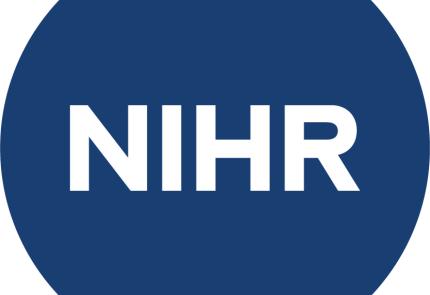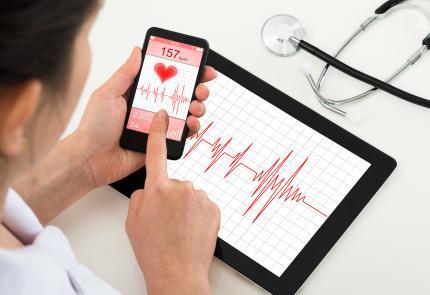
Organisations offering opportunities for involvement
Involving the public in applied informatics at ARC South London
The ARC's applied informatics theme includes four patient and public advisors, who are highly experienced in understanding patient electronic medical data and digital tools. By collaborating with patients and members of the public, we aim to engage in genuine and informed conversations about people’s expectations regarding the applications of digital technology. Our patient and public advisors are at the heart of our decision-making processes, enlightening and supporting our research activities to inform system planning.
Contact us: arc-communications@kcl.ac.uk
Cicely Saunders Institute - online forum for palliative care
The Cicely Saunders Institute operates an online forum for patient and public involvement (PPI) in palliative care and rehabilitation research. The online forum provides a flexible method of involvement, increasing the number and diversity of people contributing to palliative care and rehabilitation research.
- Find out more
- Contact us: csi.ppi@kcl.ac.uk
NIHR Maudsley Biomedical Research Centre (BRC)
The NIHR Maudsley Biomedical Research Centre (BRC) is a partnership between South London and Maudsley NHS Foundation Trust and the Institute of Psychiatry, Psychology & Neuroscience at King's College London. The BRC is researching novel tests, treatments and technologies to understand and treat mental disorders.
OneLondon
OneLondon is one of the country’s first Local Health and Care Record Exemplars (LHCRE), designated by NHS England. The OneLondon LHCRE is a partnership of NHS organisations and local government across London, working together with citizens to transform London’s health and care services by joining up information to support fast, effective and safe care.
- Email: cds@lpp.nhs.uk

Electronic health and social care records: involvement opportunities
BioYODIE, SemEHR and CogStack: text analytics for medical records
This set of search system tools is associated with the Centre for Translational Informatics (CTI), which features a Board that includes, a number of other key stakeholders, including service users, as well as leaders of its partner organisations.
Get involved: email: antony.parker@slam.nhs.uk
Consent for contact (C4C): register of people interested in taking part in mental health research
C4C is a register of people who would be willing for researchers to contact them to ask if they would like to take part in research that contributes to better health for people with mental health-related problems. Anyone interested in involvement can register and be sent research opportunities. South London and Maudsley NHS Foundation Trust (SLaM) also includes further opportunities, such as joining charities that offer searchable databases of current opportunities across the country or online, newsletter subscriptions, and support and participation in specific research projects.
Find out more: www.slam.nhs.uk/about-us
Lambeth DataNET: anonymised GP patient records
Lambeth DataNET is an anonymised case register of GP patient records in Lambeth aimed at obtaining anonymous information to plan and improve health services. It has various opportunities for involvement including: assisting in development of the approach, the formation of reports to present for consideration by the Engagement Assurance Committee, membership of the committee, assisting in the promotion and management of Healthwatch (a function that that listens to public and patient experiences of health and care services in order to drive improvements), and attending free events.
- Find out more: https://selondonccg.nhs.uk/about-us
- Contact: https://selondonccg.nhs.uk/contact-us
- Get involved: https://selondonccg.nhs.uk/get-involved/developing-engagement
National Neonatal Research Database: a continuous care record for neonatal and paediatric care in the UK
The National Neonatal Research Database is associated with BadgerNet, an end-to-end service that supports electronic recording of women and children’s health. Anyone interested in participating can attend events held by the group, or through Imperial College London’s other PPI opportunities.
- Find out more: www.imperial.ac.uk/neonatal-data-analysis-unit/neonatal-data-analysis-unit/information-for-patients-and-carers
- Contact email: ndau@imperial.ac.uk or r.colquhoun@imperial.ac.uk
- Get involved with BadgerNet: www.clevermed.com/events
- Get involved with Imperial College London: www.imperial.ac.uk/be-inspired
UK Biobank: health data from 500,000 volunteers
A national and international health resource aimed at improving the prevention, diagnosis and treatment of a wide range of serious and life-threatening illnesses. Patient and public involvement opportunities include: registering to be updated on new results and be offered opportunities to help with further research initiatives, as well as specific involvement opportunities for people with particular characteristics and online questionnaires for people who have previously been involved in research.
- Find out more: www.ukbiobank.ac.uk/learn-more-about-uk-biobank
- Get involved: www.ukbiobank.ac.uk/explore-your-participation

Approved digital linkages: involvement opportunities
Clinical Data Linkage Service (CDLS)
This service ‘links’ information from the Clinical Record Interactive Search (CRIS) with other clinical sources. The Data Linkage Service User and Carer Advisory Group is a regular meeting of people with lived experience of mental illness, all of whom have an interest in mental health research involving data linkage. The group meets on a quarterly basis and researchers are invited to present their project, where they will receive feedback and advice from the group.
- Get involved: If you are interested in becoming a member of the group and would like information, email Amelia Jewell (amelia.jewell@slam.nhs.uk) or Megan Pritchard (megan.pritchard@kcl.ac.uk)
- Find out more: www.maudsleybrc.nihr.ac.uk/facilities/clinical-record-interactive-search-cris/cris-data-linkages
CRIS/Maudsley BioResource
The NIHR Maudsley BioResource for mental health focuses on research into psychiatry and neurology. It stores samples from volunteers with diagnoses such as dementia, schizophrenia, autism, mood and eating disorders, and others, to help advance research into those areas and support the development of more efficient treatments. There are many opportunities for service users and the public to get involved, such as co-leading in research priorities, being part of various groups who meet regularly and give feedback on researcher projects.
- Find out more: www.maudsleybrc.nihr.ac.uk/about-us
- Get involved: www.maudsleybrc.nihr.ac.uk/patients-public/help-shape-our-research
DATAMIND: hub for mental health informatics research
DATAMIND enables coordinated research to improve lives and aims to transform mental health research in the UK by providing a central, integrated data infrastructure with accessible mental health data sets. Patients and the public are encouraged to join the DATAMIND Patient and Public Research Advisory Group.
- Find out more: https://popdatasci.swan.ac.uk/centres-of-excellence/datamind
- Contact: Dara.Almeidamedina@Swansea.ac.uk
- Get involved: https://popdatasci.swan.ac.uk/engagement/public-engagement
Health Data Research Innovation Gateway
The Health Data Research Innovation Gateway provides a common entry point for discovery and enquiry about access to UK health datasets for research and innovation. Feedback is welcomed on its forum, and it holds specific sessions and workshops. There is also a Gateway Development and Improvement Group that allows for the public and patients to give informal feedback on features.
- Find out more: www.healthdatagateway.org/about/our-mission-and-purpose
- Contact: www.healthdatagateway.org/about/contact-us
- Get involved: www.healthdatagateway.org/about/development-and-improvement-group
NIHR Health Informatics Collaborative (HIC)
The NIHR Health Informatics Collaborative (HIC) is a collaboration between 29 NHS trusts aiming to support the flow of patient data and create a framework for data sharing and use across the trusts and partner organisations. Interested public and patients can get involved by becoming a reviewer of research being produced, getting involved in the research creation, or by taking part in the study as a participant. There are also free opportunities to learn about the process of conducting research.

Mobile health resources and apps: involvement opportunities
Medichec: minimising the risks from anticholinergic drugs
A free web-based app designed to review patient’s medication and minimise the risks from anticholinergic drugs. It is supported by the Centre for Translational Informatics (CTI), which encourages engagement with multiple key stakeholders including service users within their CTI Programme Board. Interested patients and members of the public are encouraged to get in touch.
- Find out more: https://ctiuk.org/about
- Contact: https://ctiuk.org/contact
myHealthE: digital platform supporting children and young people with psychiatric conditions
myHealthE is an NHS digital health monitoring system providing a way for families accessing the Child and Adolescent Mental health Services (CAMHS) to report clinical information and means to support children and young people with psychiatric conditions and caregivers between clinic visits and improve the quality of data available for monitoring treatment effectiveness. Supported by the Centre for Translational Informatics (CTI), the CRI has many opportunities for patient and public involvement, including participating in various groups, courses, volunteering at the service, joining interview panels, or acting as presenters, all to give their voices to the centre and its running.
- Find out more: myHealthE – Centre for Translational Informatics (ctiuk.org)
- Email: antony.parker@slam.nhs.uk
RADAR-AD: using mobile technology to understand Alzheimer’s Disease
The RADAR-AD project aims to see how mobile technologies can be used to measure disability progression associated with Alzheimer’s disease. Patients and the public are encouraged to join the patient advisory board if they have experience either living with or taking care of someone living with cognitive impairment.
- Find out more: www.radar-ad.org/about-us/mission-and-vision
- Contact: www.radar-ad.org/contact
- Get involved: www.radar-ad.org/patient-engagement/patient-and-public-involvement
RADAR-CNS: caring for brain disorders with mobile technology
The Remote Assessment of Disease and Relapse – Central Nervous System (RADAR-CNS) is a project examining the potential of smartphone technology and consumer wearable devices such as FitBit to manage and treat brain disorders like multiple sclerosis (MS), epilepsy, and depression. Patient and public members who are interested in getting involved can join the patient advisory board who provide feedback on research, or read participant brochures or a newsletter regarding the projects. Individuals affected by epilepsy, multiple sclerosis or depression can also sign up to be directly told about research opportunities to participant in.
- Find out more: www.radar-cns.org/about
- Contact: www.radar-cns.org/contact
- Get involved: www.radar-cns.org/patient-advisory-board